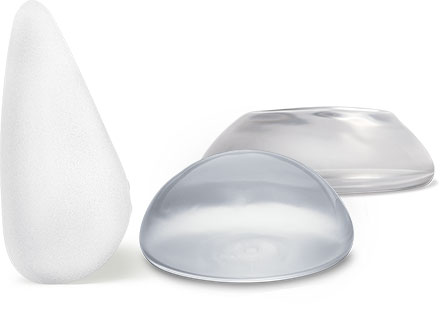What you need to know about Breast Implant Illness (BII)
Breast Implant Illness (BII) is a recently described constellation of symptoms some women have described after receiving a breast implant either for cosmetic augmentation or breast cancer reconstruction.

The US Food and Drug Administration (FDA) notes in public statements and on their website that they have received reports of some women who experienced symptoms with both saline and silicone gel-filled breast implants. These symptoms are termed “systemic” meaning occurring throughout the body and outside of the breast area. The FDA further explains that symptoms are very diverse between patients and may include fatigue, memory loss, rash, “brain fog,” and joint pain.
Patients and some caregivers have used the term “breast implant illness” (BII) to describe some or all of these symptoms. These symptoms may sometimes develop after only a few months or many years after receiving the implants.
Currently, these symptoms and what causes them are poorly understood and there are no known blood tests or imaging studies to test for or confirm BII. Even when women display these symptoms, blood tests are frequently normal and do not demonstrate any infection or inflammation.
There are no known factors that have been identified that increase risk of developing these symptoms. BII symptoms appear to only affect a small minority of patients receiving breast implants. The FDA notes that in some cases, removal of the breast implants without replacement has been reported to reverse symptoms of breast implant illness. Importantly, the FDA has not detected any association between breast implants and breast cancer or reproductive problems. Currently, researchers are investigating these symptoms to better characterize BII, understand the origins, and relation to breast implants.
For any patients that may experience these symptoms or for any injury with a medical device, the FDA encourages reporting by phone at 1-800-FDA-1088 or online at MedWatch, the FDA Safety Information and Adverse Event Reporting program.
About the author:
Dr Mark Clemens is a board certified plastic and reconstructive surgeon at the MD Anderson Cancer Center, and contributor to the Breast Advocate® App. Dr Clemens’ research interests include outcomes and translational research involving microvascular and prosthetic reconstructive surgery of the breast. He is also a leading authority on breast implant-associated anaplastic large cell lymphoma (bia-ALCL) and co-leads a multidisciplinary clinical and laboratory research team on the investigation of bia-ALCL.
Reports of Breast Implant-Related Illnesses Prompt FDA Review
New safety concerns over breast implants has prompted the FDA to hold a two-day meeting to hear from researchers, patients, plastic surgeons, and implant manufacturers. The hearing was scheduled for March 25th and 26th, 2019.
Concerns surfaced recently following the publication of the first study to review breast implant safety data following the FDA’s approval of silicone implants. The study, published in Annals of Surgery, is the largest ever study of silicone breast implants.
The researchers analyzed data on nearly 100,000 patients enrolled in the study between 2007 and 2010. More than 80,000 patients received silicone implants (Allergan or Mentor); the rest received saline implants. Seventy-two percent of the patients underwent primary breast augmentation, 15 percent had revision augmentation, 10 percent had primary breast reconstruction, and three percent had revision reconstruction procedures.
The authors found silicone implants are generally safe but are also associated with a slightly higher risk of a few rare diseases including Sjogren’s syndrome (8-fold increase), scleroderma (7-fold increase), rheumatoid arthritis (6-fold increase), stillbirth (4.5-fold increase), and melanoma (4-fold increase). One case of BI-ALCL (rare lymphoma associated with textured implants) was reported.
The findings have been disputed by many experts, including federal health regulators, who nevertheless scheduled the public meeting to consider implant safety.
“These findings aren’t meant to suggest implants caused these problems,” said Dr. Mark Clemens, an MD Anderson professor of plastic surgery, Breast Advocate App contributor, and the senior investigator of the study. “They’re associations, which underscore the need for more research in this area, but do provide key safety information for women and their providers to consider when thinking about cosmetic or reconstructive surgery with breast implants.”
Since the publication, the FDA has also issued a statement acknowledging that implantable devices, including breast implants, may make some people sick. “A growing body of evidence suggests that a small number of patients may have biological responses to certain types of materials in implantable or insertable devices… [which can include] inflammatory reactions and tissue changes causing pain and other symptoms that may interfere with their quality of life.”
Following the hearing and consideration of all the information presented, the FDA released this statement.






